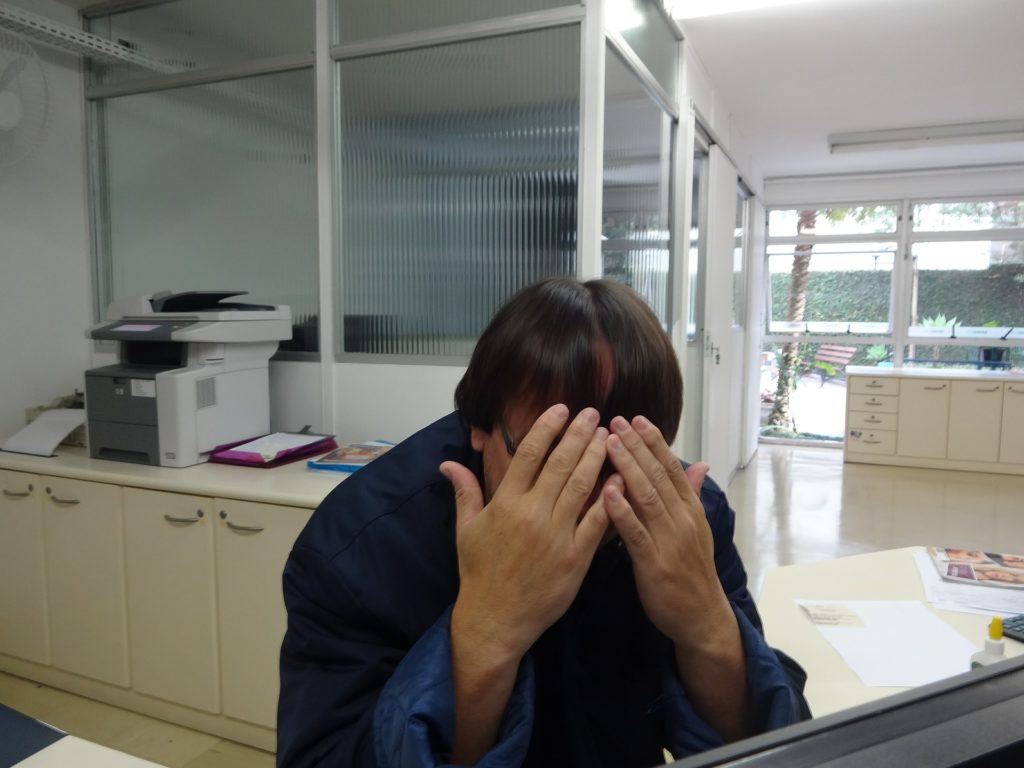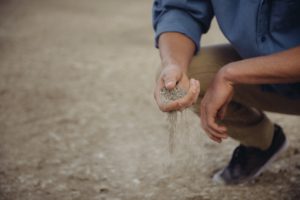
You have probably heard at some point that addiction and denial go hand-in-hand. There is an even tighter hand-in-hand connection that any addict in recovery needs to become familiar with—one that could make or break recovery.
Have you considered just how dependent we are upon our bodies to understand our environment, and live effectively? If we can’t feel temperature we are likely to get hyperthermia or burn ourselves. If we can’t feel pain we are hopelessly in danger. Similarly, we need to know what our bodies are telling us about many more experiences.
“Our lives emerge most primarily in the forms of bodily sensations and movements, perceptions, and emotions.” These emerging forms are what drive, guide and trigger many of our behaviors. When we feel the gut wretch (literally) of sorrow we slow down, bend over, or can’t eat for days. Recovering a visceral understanding of our bodies and how they are “talking” to us is critical to understand the presence and power of shame.
Understanding the Experience of Shame
Shame is most commonly known as a “hot” feeling, or a “pit in the stomach”. The heat of embarrassment makes us hide, and our stomach churning makes us wary. Shame also acts like a lead balloon on your eyes!
Your gaze is almost impossible to lift—particularly if it could find another person's gaze. Everyone’s visceral experience of shame is nuanced and unique, which means they need to become familiar with their own bodies cue that shame is upon them.
Why you ask? Because that felt sense of shame is something that enlists great swaths of our energy into hiding and secretive behavior. This is one of the largest forces behind denial, and enabling the addiction cycle to continue.
Without recognizing and confronting the physical experience of shame, it is very hard for an addict to talk about the addiction and subsequently overcome it.
And here is the second nasty part of shame’s trap! When we experience shame it “exudes the aroma of being unable or powerless to change one’s condition or circumstances.” That is not good for someone that is attempting to overhaul his or her coping strategies for life!
If we feel powerless and unable, we are more likely to give up and return to destructive patterns. It is the felt sense that I don’t and won’t ever have what it takes to last through this moment, or exposure that keeps many addicts out of recovery.
Learning to Overcome Shame
One of the greatest lies in our Western World is that we can correct, protect, solve and eradicate all pain and vulnerability. Curt Thompson writes about this beautifully in his book on Shame, and helps us realize that vulnerability is actually normal.
We are vulnerable to so much! To being physically hurt, emotionally assaulted, vocationally stranded, relationally affronted. This list barely scrapes the surface, but you get the point. We are deluded into assuming that we can hide our weakness, build new and stronger protections and never suffer.
This is problematic because when we encounter normal struggle or pain we label ourselves as “inferior” or “inept”, we experience being “small” or “useless”. When we disbelieve vulnerability shame has us right where it wants us—ready to hide.
Many of us grew up in a context where weakness or pain were shunned and it was assumed that we need not go to others for support, and if we did it would only make things worse. Some ended up thinking they had “no need”, and others thought, “no one cares about my need”. Either way, shame helps us bury our needs, and with it, our ability to know what we need to survive without an addiction to something.
Making Changes that Support Recovery
The alternative is to start admitting normal human vulnerability, and engage accordingly. The second step after this monumental shift is to allow yourself to feel shame as your own experience. What internal, physical experience do you have with shame? When does it come up? How does it affect you? What does it cause you to do?
Once you have felt shame and know when it arrives, you are ready to start fighting it.
- Start by breathing deeply.
- Then name to yourself, “this is my experience of shame”, and follow it with truth telling: “Shame wants me to believe I can’t move, that I am worse than everyone else” (and you may truly feel this way).
- Counter shames movement with truth and humility: “It is normal to feel overwhelmed and struggle”, “Isolation isn’t the way I was designed to function! My brain and heart work best in caring community”.
- Track shame by noting down when and where it struck you, so that you can know your enemy and be ready to proactively fight it.
- Stepping out into trusted relationships where you can share your struggle is key—and you may need to practice these strategies carefully to start doing so.
 The message of this hand-in-hand connection between shame and continuing addiction is this: Learn to act according to truth (that you and others will remind you of), not the visceral sense of powerlessness that accords with the lies of shame. This is one time where the visceral senses of the body have been hijacked to further your harm, rather than allow you to thrive.
The message of this hand-in-hand connection between shame and continuing addiction is this: Learn to act according to truth (that you and others will remind you of), not the visceral sense of powerlessness that accords with the lies of shame. This is one time where the visceral senses of the body have been hijacked to further your harm, rather than allow you to thrive.
Community Discussion - Share Your Thoughts Here!
How have you learned to overcome shame in your own life?
 About the author: Paul Loosemore, MA PLPC, author of “21 Movements Towards Life” – The step-by-step guide to recovering from sexual addiction or pornography. Paul works as a mental health counselor, and consults with those who wish to recover from Sexual Addiction—both individuals and couples. He is the founder of www.stopsexualaddiction.com where you can find his guide, or contact him.
About the author: Paul Loosemore, MA PLPC, author of “21 Movements Towards Life” – The step-by-step guide to recovering from sexual addiction or pornography. Paul works as a mental health counselor, and consults with those who wish to recover from Sexual Addiction—both individuals and couples. He is the founder of www.stopsexualaddiction.com where you can find his guide, or contact him.
References:
[1]: Thompson, C. (2015) The Soul of Shame. IVP : Downers Grove p. 24
[2]: Ibid, p. 24
[3]: Ibid, p. 25
[4]: Ibid.
The opinions and views of our guest contributors are shared to provide a broad perspective of addictions. These are not necessarily the views of Addiction Hope, but an effort to offer discussion of various issues by different concerned individuals.
We at Addiction Hope understand that addictions result from a combination of environmental and genetic factors. If you or a loved one are suffering from an addiction, please know that there is hope for you, and seek immediate professional help.
Reviewed By: Jacquelyn Ekern, MS, LPC on January 10, 2017.
Published on AddictionHope.com
